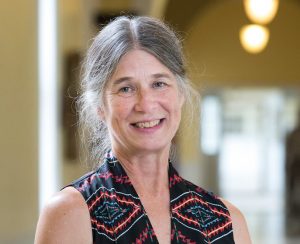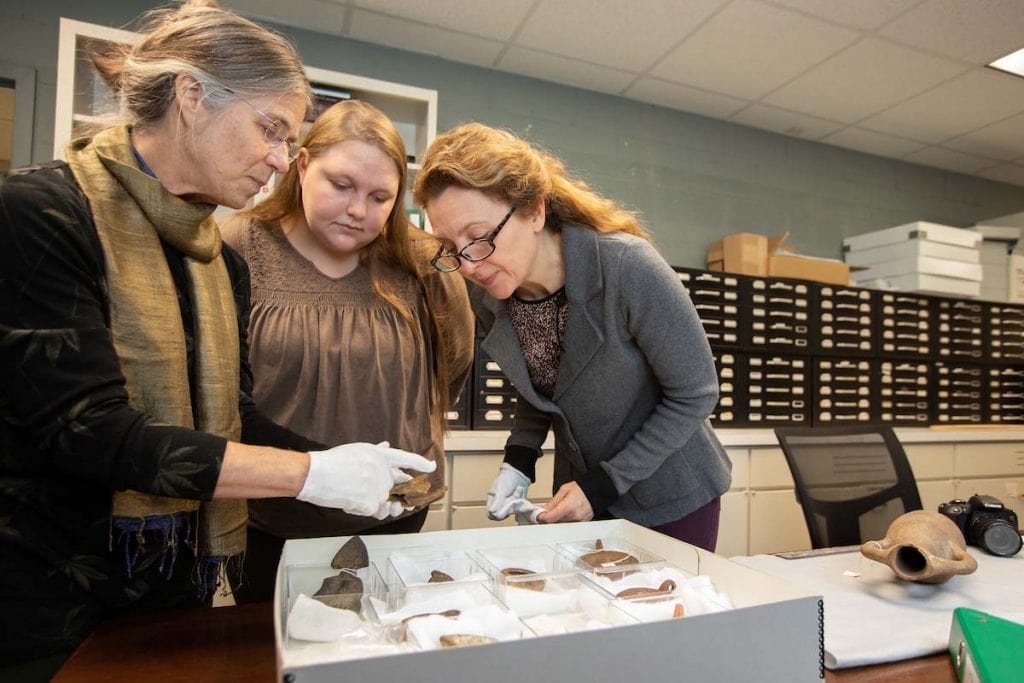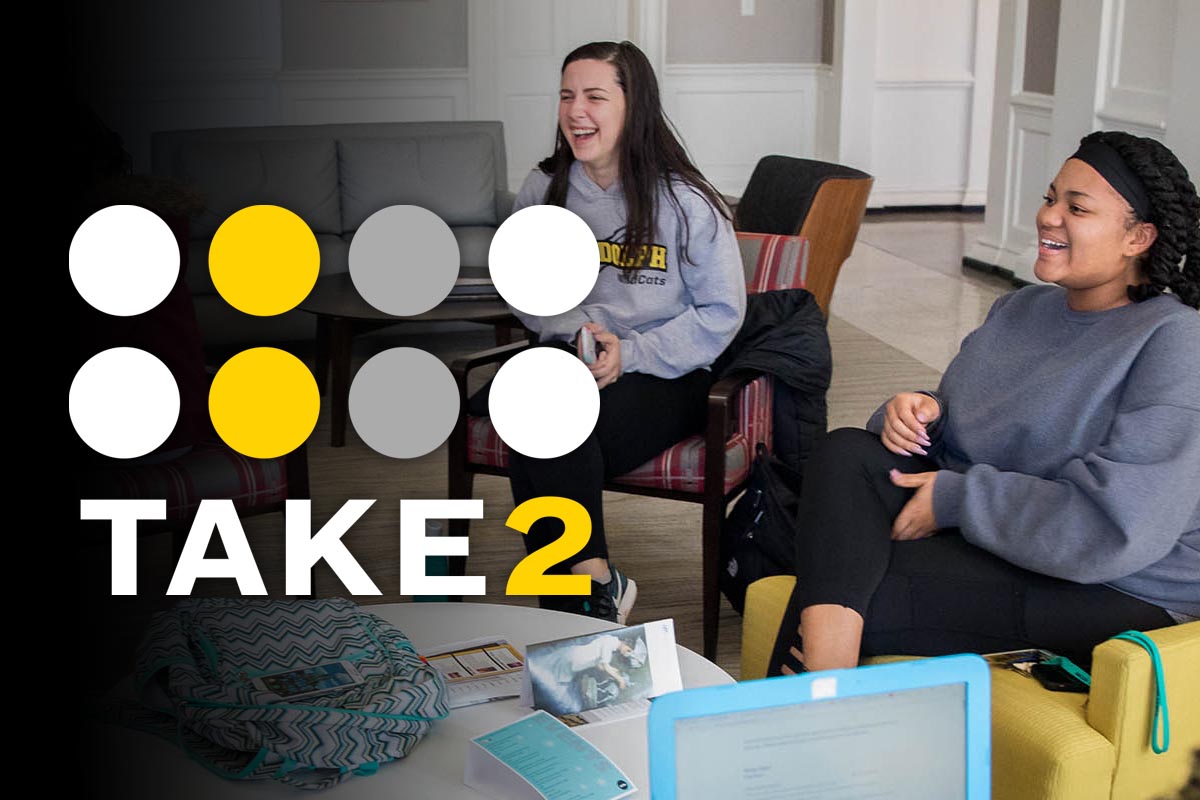Susan Stevens reflects on nearly three decades behind the Red Brick Wall

Susan Stevens
As a graduate student at the University of Wisconsin-Madison, Susan Stevens was not interested in archaeology. It was a trip to Tunisia to participate in the university’s excavations at Carthage that changed everything.
“That first summer in Carthage, I fell in love with collaborative fieldwork,” said Stevens, Randolph’s Catherine E. and William E. Thoresen Chair of Humanities. “The experience changed the focus of my research from ancient literature to the material world of Roman archaeology.”
Before coming to Randolph, Stevens, who is retiring this year, had a series of short-term appointments at Illinois State University, Iowa’s Luther College, Indiana University, the University of Wisconsin-Madison, and Georgia’s Agnes Scott College.
She eventually accepted a tenure track position at the College, which was postponed until 1993 so she could take advantage of a fellowship at the Center for Byzantine Studies at Dumbarton Oaks in Washington. Stevens finished writing her first book during the fellowship; it was later published the fall of her first year at the College.
Her expertise centers on Roman and early Christian art and archaeology, burial archaeology, and late Roman architecture. In addition to teaching Latin and archaeology courses at Randolph, she also regularly conducts field work.
A specialist in the archaeology of North Africa, she has directed excavations at Carthage and Lamta that included archaeological field schools for undergraduate students and led to the publication of both articles and books.
“Somewhat to my surprise, because fieldwork is so energizing, I have derived more satisfaction from the glacially slow and painstaking work of telling a coherent story about these sites,” Stevens said. “That is, analyzing, interpreting, and writing up the results of these excavations.”

Susan Stevens, a classics professor, Sara Primm ’20, and Andrea Campbell, an art history professor, work in the Ancient Collections Room.
Here’s more of what she had to say about her time at the College:
When and how did you decide to go into higher education?
“I deeply admired my professors in college and graduate school, especially their rigor, generosity, and enthusiasm. The rhythms of academic life suited me, with its precious gifts of freedom to explore and develop. Research and teaching at the college level is an on-going education. What could be better?”
What is your teaching philosophy, and how have you approached that here at Randolph?
“I’ve never been sure how to answer that question which seems to me to take all the fun out of teaching. I want to develop in my students what my mentors encouraged in me—enthusiasm, generosity, focus, independence, a joy in hard work, and an adherence to facts and honest arguments, to name a few. I was lucky and honored to have mentors who helped me find my niche, pushed me to take chances and make my own mistakes and course corrections, and shaped my own career.”
What have been your favorite classes to teach?
“Really, I have enjoyed them all for different reasons. First-year Latin because the logic, structure, and challenges of the language are endlessly engaging; archaeology and collections-based courses because the material, non-elite world is where my expertise and curiosity lies. Lately, museum and heritage studies classes have taken me way out of my comfort zone, scary but fun.”
How have you balanced your time in the classroom with continuing your research and work in the field?
“During the academic year, college life absorbs nearly all my time, so I am a slow but steadily productive-as-I-can-be scholar. I love fieldwork and collaborative research and have enjoyed giving students opportunities to participate in both. I think that this aspect of my career has helped me keep many balls in the air at the same time and taught me to be patient. What has really kept my research going in the long term is inherent to directing excavations; obligations to do right by the sites and objects I have been privileged to excavate, and by my colleagues who have graced my projects with their time and energy.”
What advice would you give to students?
“Take risks to learn what you love, adapt what you learn to suit your strengths. Set goals, pursue them as best you can and soldier through rough patches. Along the way, walk through doors that are open to you, seemingly by chance; you never know who you’ll meet or what you’ll discover.”
Why do you think the liberal arts are important?
“Your eventual job (or jobs) or company is not your life. The liberal arts bring richness to your whole life and forge links to the many aspects of your world.”
What’s next for you?
“Spending more time with family and friends, old and new; Travel, research and writing on my own schedule.”

